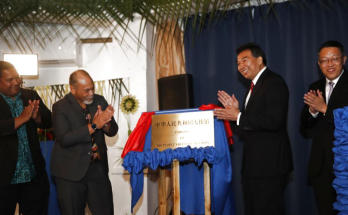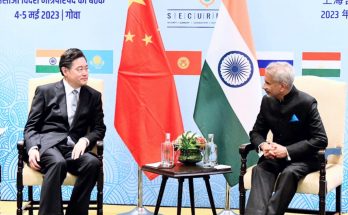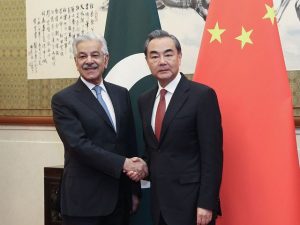 The inhospitable weather in Doklam and the ensuing heat of India-China standoff may have compelled China to go along with BRICS on naming Pakistan-based terror outfits in the Xiamen Declaration, but when it comes to friendship with Islamabad, it is forever sweetness and light. Days after the BRICS summit in Xiamen which for the first time named Pakistan based anti-India terror outfits, China has robustly rallied to defence of its “good brother and friend.” In the case of Pakistan, it’s always “one road” for China – a friendship “higher than Himalayas and deeper than oceans.”
The inhospitable weather in Doklam and the ensuing heat of India-China standoff may have compelled China to go along with BRICS on naming Pakistan-based terror outfits in the Xiamen Declaration, but when it comes to friendship with Islamabad, it is forever sweetness and light. Days after the BRICS summit in Xiamen which for the first time named Pakistan based anti-India terror outfits, China has robustly rallied to defence of its “good brother and friend.” In the case of Pakistan, it’s always “one road” for China – a friendship “higher than Himalayas and deeper than oceans.”
“For years, Pakistan has been a victim of terrorism. More importantly, Pakistan is an important participant in the international cooperation against terrorism”, Chinese Foreign Minister Wang Yi said in Beijing on September 7. “When it comes to the issue of counter-terrorism, Pakistan has done its best with a clear conscience. In comparison, some countries need to give Pakistan the full credit that it deserves”.
The latest remarks by China belie jubilation and hype that followed in India after the BRICS joint declaration in Xiamen included a reference to Pakistan-based terror outfits, including Lashkar e-Taiba and Jaish e-Mohamed. Television divas and strategy gurus had touted the BRICS’ declaration on counter-terrorism as a major success of Indian diplomacy. Given the context and the preceding Doklam standoff, the inclusion of Pakistan-based militant outfits was a breakthrough of sorts and a movement forward, but as the latest messaging from Beijing indicates, it’s time to temper post-Xiamen euphoria and take a reality check.
China-Pak axis in Afghanistan
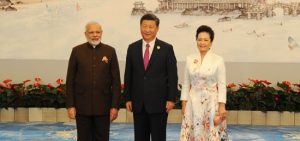
Going beyond the BRICS, what should be worrying for India is the tightening alliance between China and Pakistan for pushing a political settlement with the Taliban in Afghanistan, which New Delhi has always viewed with unease. It’s not surprising as Trump’s Afghanistan policy is silent on China’s role and directly targets Pakistan for diverting billions of dollars in aid by fomenting terrorism in the violence-beset Pakistan.
The meeting between China’s Foreign Minister Wang Yi and his Pakistani counterpart Khawaja Asif in Beijing has, therefore, been watched closely in New Delhi. Denouncing Trump’s new Afghan policy, Mr Asif reiterated Pakistani Parliament’s resolution. “It’s our firm view that there is no military solution in Afghanistan, the focus should be on a politically negotiated settlement”. He acknowledged China’s role as an important negotiator between Pakistan and Afghanistan. Prior to his trip, Mr Asif had stated that “friends should not be tested [every time], particularly in the changed scenario.” “Instead, we should impose some restrictions on the activities of elements like LeT and JeM, so that we can show the global community that we have put our house in order”.
Under pressure from the Trump administration, Pakistan is naturally banking on its all-weather patron, China, as the two all-weather partners gang up to push for a China-Pakistan-Afghanistan trilateral, which could take place later this year.
Not surprisingly, Mr Asif has welcomed China’s initiative and has expressed his gratitude for China’s firm support. He reminded China of Pakistan’s support of One China policy and One Belt and One Road project, in which Islamabad is a lead partner.
Clearly, many analysts were reading too much into the BRICS joint declaration in Xiamen, in which China relented to include a reference to Pakistan-based terror groups. It was a tactical move by China, and should not be construed as a weakening of China-Pakistan axis.
The Trump Opportunity
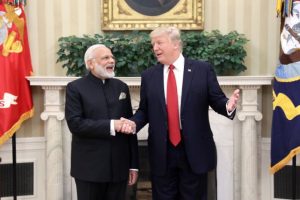 For India, the best case scenario is to raise its game in Afghanistan by leveraging a unique opportunity afforded by Trump’s Afghanistan policy, which envisages a crucial role for New Delhi as a net security provider in Afghanistan and the extended region.
For India, the best case scenario is to raise its game in Afghanistan by leveraging a unique opportunity afforded by Trump’s Afghanistan policy, which envisages a crucial role for New Delhi as a net security provider in Afghanistan and the extended region.
On Pakistan-sourced terrorism, India should take the advantage of the Xiamen Declaration to pressure China and bolster the BRICS solidarity, but eventually it will have to fight its own battle against diehard jihadi groups and hawks in China.
For now, China seems to have indicated that its all-weather friendship with Pakistan is higher than the Himalayas, and certainly higher than the edifice of BRICS.
(With inputs from Pritha Mahanti)
Author Profile

- Manish Chand is Founder-CEO and Editor-in-Chief of India Writes Network (www.indiawrites.org) and India and World, a pioneering magazine focused on international affairs. He is CEO/Director of TGII Media Private Limited, an India-based media, publishing, research and consultancy company.
Latest entries
 India and the WorldMarch 3, 2024India-Denmark Connect: Red carpet for Indians to Red Sea cooperation
India and the WorldMarch 3, 2024India-Denmark Connect: Red carpet for Indians to Red Sea cooperation India and the WorldFebruary 17, 2024Munich Security Conference: Jaishankar, Blinken focus on Red Sea, Middle East
India and the WorldFebruary 17, 2024Munich Security Conference: Jaishankar, Blinken focus on Red Sea, Middle East India and the WorldFebruary 14, 2024Munich Security Conference report: Migration, war top security threats
India and the WorldFebruary 14, 2024Munich Security Conference report: Migration, war top security threats India and the WorldJanuary 23, 2024With “Ram to Rashtra” mantra, Modi consecrates Ram temple for national renewal
India and the WorldJanuary 23, 2024With “Ram to Rashtra” mantra, Modi consecrates Ram temple for national renewal





